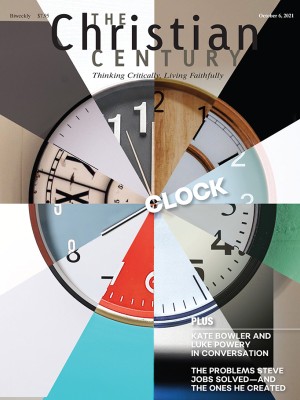New Bible translation for Native American readers

It’s a Bible verse familiar to many Christians—and even to many non-Christians, who have seen it on billboards and T-shirts or scrawled across eye black under football players’ helmets.
But Terry Wildman hopes the new translation published on August 31 by InterVarsity Press, First Nations Version: An Indigenous Translation of the New Testament, will help Christians and Indigenous people read John 3:16 again in a fresh way.
“The Great Spirit loves this world of human beings so deeply he gave us his Son—the only Son who fully represents him. All who trust in him and his way will not come to a bad end, but will have the life of the world to come that never fades away, full of beauty and harmony,” reads the verse in the First Nations Version.
The idea for an Indigenous Bible translation first came to Wildman, the lead translator and project manager for the First Nations Version, nearly 20 years ago in the storeroom of a church he pastored on the Hopi Reservation in Arizona.
Wildman, who is Ojibwe and Yaqui, was excited to find a Hopi translation of the New Testament in storage. He wanted to hear how that beloved verse sounded in Hopi, how it translated back into English. But, he said, while many Hopi elders still speak their native language and children are now learning it in schools, he couldn’t find anyone able to read it.
Read our latest issue or browse back issues.
That is true for many Native American nations, he added, noting that at the same time Christian missionaries were translating the Bible into Native languages, they were also working with the boarding schools in the United States and Canada that punished students for speaking those languages.
It occurred to the pastor that “since 90-plus percent of our Native people are not speaking their tribal language or reading their tribal language, we felt there needed to be a translation in English worded for Native people,” he said.
Wildman, a licensed local pastor in the United Methodist Church, has been working on translating the Bible into words and concepts familiar to many Native Americans ever since.
Wildman was encouraged by the reactions he received as he shared his rewordings across the country at tribal centers, Native American–led churches, and powwows. Young people have told him it sounds like one of their elders telling them a story. Elders have said it resonates with how they heard traditional stories from their parents and grandparents.
Then, on April Fool’s Day 2015, he heard from the CEO of OneBook Canada, who suggested the Bible translation organization fund his work. The offer wasn’t a prank, he said, it was “confirmation from Creator that this was something he wanted.”
Wildman began by forming a translation council to guide the process, gathering men and women, young and old, from different Native cultures and church backgrounds. They started with a list of nearly 200 keywords that Wycliffe Bible Translators said must be translated properly to get a good translation of scripture.
The Indigenous translation uses names for God common in many Native cultures, including “Great Spirit” and “Creator.” Names of biblical figures echo their original meanings in Greek and Hebrew: Jesus becomes “Creator Sets Free” and Abraham, “Father of Many Nations.”
“We believe it’s very important that the Gospel be kind of decolonized and told in a Native way, but being accurate to the meaning of the original language and understanding that it’s a different culture,” Wildman said.
Native InterVarsity, where Wildman serves as director of spiritual growth and leadership, has distributed earlier editions of the First Nations Version at conferences and used the Indigenous translation in its Bible studies for Native college students for several years.
Megan Murdock Krischke, national director of Native InterVarsity, said students have been more engaged with the translation, hearing the Bible in a way they’re used to stories being told.
“Even though it’s still English, it feels like it’s made by us for us. This is a version of scripture that is for Native people, and it’s indigenized. You’re not having to kind of sort through the ways other cultures talk about faith and spirituality,” said Krischke, who is Wyandotte and Cherokee.
Wildman said the response from Native peoples and ministries to the First Nations Version has exceeded any expectations he had when he first began rewording Bible passages.
He hopes it can help break down barriers between Native and non-Native peoples, too. He pointed out the suspicion and misinformation many White Christians have passed down for generations, believing Native Americans worship the devil and their cultures are evil.
“We hope that this will be part of creating a conversation that will help that process,” he said. —Religion News Service





